![]()
Implementing ERP solutions can pose several challenges that schools must address to ensure a successful implementation. Addressing these challenges allows schools to overcome any complication associated with ERP implementation. One significant challenge of ERP solutions is the resistance to change from staff that is accustomed to traditional processes and systems. It is common for educators and administrative staff to be understanding about learning new systems and adapting to their workflows.
Another challenge of ERP solution implementation in schools is the integration and customization of the software to meet the distinguished requirements of the schools. Schools have specific requirements related to grading systems, student information management, scheduling, and reporting. Therefore, it is vital to choose an ERP software that can accommodate and customize these varied requirements and amalgamate seamlessly with existing processes. Additionally, ensuring data security and privacy is of utmost importance as schools manage sensitive student and employee information.




